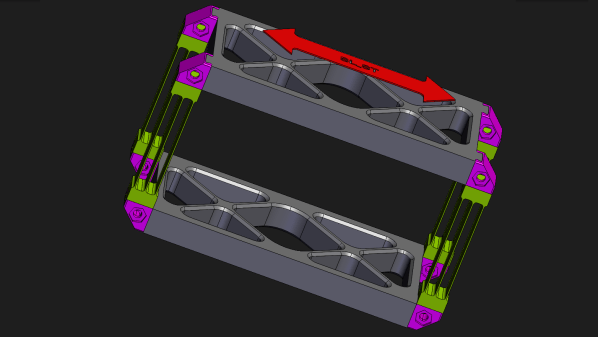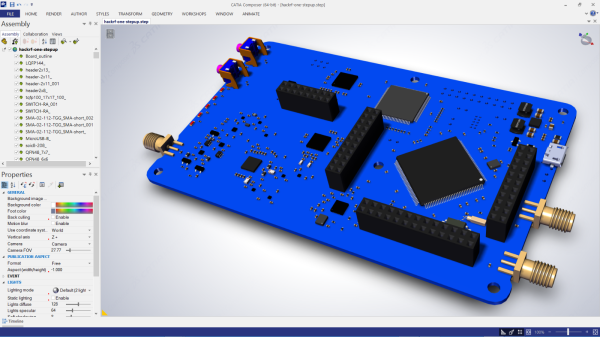Flexures are one of those innocent-looking mechanisms that one finds inside practically any kind of consumer device. Providing constrained movements with small displacements, complete with controlled tension, they can be rather tricky to design. GrabCAD designer [Vyacheslav Popov] hails from Ukraine, and due to the current situation there, plans to sell a collection of flexure building blocks became difficult. In the end, [Vyacheslav] decided to generously release his work open source, for all to enjoy. This collection is quite extensive, looking like it could solve a huge variety of flexure design problems. (Links to the first three sets: Set00, Set01, Set02 but check the author’s collection page for many others)
It’s not just those super-cheap mechanisms in throw-away gadgets that leverage flexures, it’s much more. The Mars rovers use flexure-based suspension, scientific instruments (interferometers and the like) make use of them for small motions where specific axis constraints are needed, and finally, MEMS accelerometers and gyroscopes are based entirely upon them. We’re not even going to try to name examples of flexures in the natural world. They’re everywhere. And, now we’ve got some more design examples to use, so why not flex your flexure muscles and send one to the 3D printer and have a play?
We see flexures here quite a bit, like this nice demonstration of achievable accuracy. Flexures can make some delicious mechanisms, and neat 3D printable input devices.
Thanks to [Addison] for the tip!












